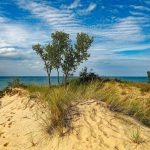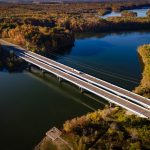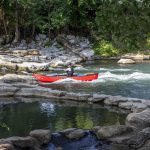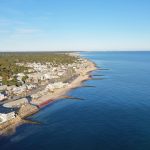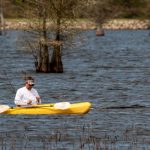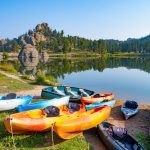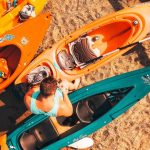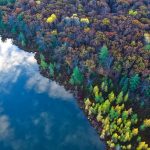Indiana is home to some of the best kayaking spots in the US. We’ve compiled a list of the best places for kayaking in the Hoosier State.
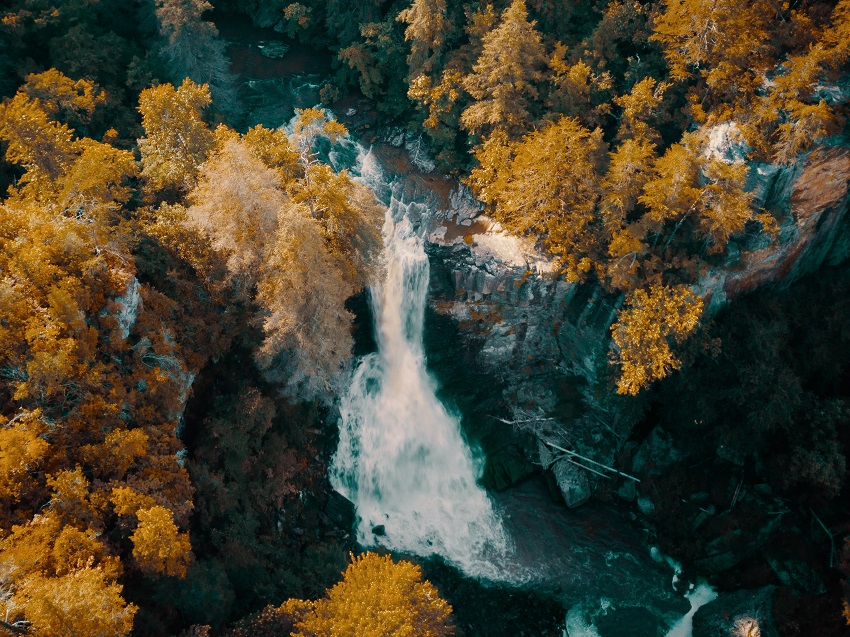
Tennessee: home to country music, fine rye whiskey, and would you know it, truly spectacular kayaking spots!
People flock to the Volunteer State from all over the world to enjoy the sights, sounds, and flavors it has to offer.
And while they’re here, many make the trips out to local lakes, rivers, and waterways to enjoy a few hours (or days) of paddling.
Whether you live in-state or are just visiting on work or vacation, there are plenty of amazing places to go kayaking in Tennessee.
Below, we’ve collected the top destinations you must visit while here, along with additional resources to make your kayaking trips safe and enjoyable.
Get ready for a paddling experience like no other!
15 Best Places to Go Kayaking in Tennessee
1. Caney Fork River
If you’re in Tennessee to do some hardcore kayaking, you’ll love what the Caney Fork River has to offer!
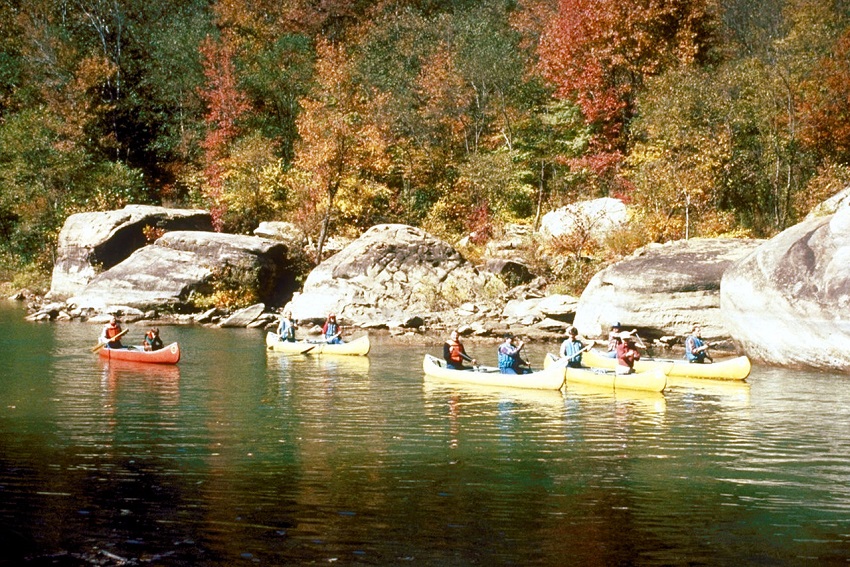
Running 144 miles long, the river is home to some exhilarating rapids and whitewater stretches that will test your mettle. There are also plenty of slower-moving sections where you and your family can enjoy a few hours of relaxing paddling.
Anglers also flock to this river from all around the country, and with good cause. The Tennessee Wildlife Resources Agency keeps the river stocked with multiple trout species every year, so there’s always fish ready to bite.
Thanks to the many public access spots available along its length, you’ll have plenty of places to put in and take out your kayak.
Best of all, it’s suitable for kayaking and water sports all year long, so you’ll always find some way to get out on the water.
2. Duck River
Though it’s not the longest river in the state, Duck River offers kayakers a truly wonderful waterway to get away from the hustle and bustle of life.
More advanced and experienced paddlers will love testing their skills at the Class II stretches, especially after the rains fall and the water level in the river is high.
There are plenty of outfitters and tour guides available to rent you gear and take you on a tour of the river, too.
For wildlife lovers, a trip down Duck River is a one-of-a-kind adventure. There is an incredible diversity of flora and fauna both in and around the river. It is home to everything from ducks (hence its name) to blue herons to wild turkeys.
Given that it’s less than an hour’s drive from Nashville, it’s easy to see why Duck River is a popular kayaking destination for out-of-state visitors to the big city.
3. Cumberland River
If you’d rather stay close to home (or your hotel), the Cumberland River is definitely a paddling must-visit.
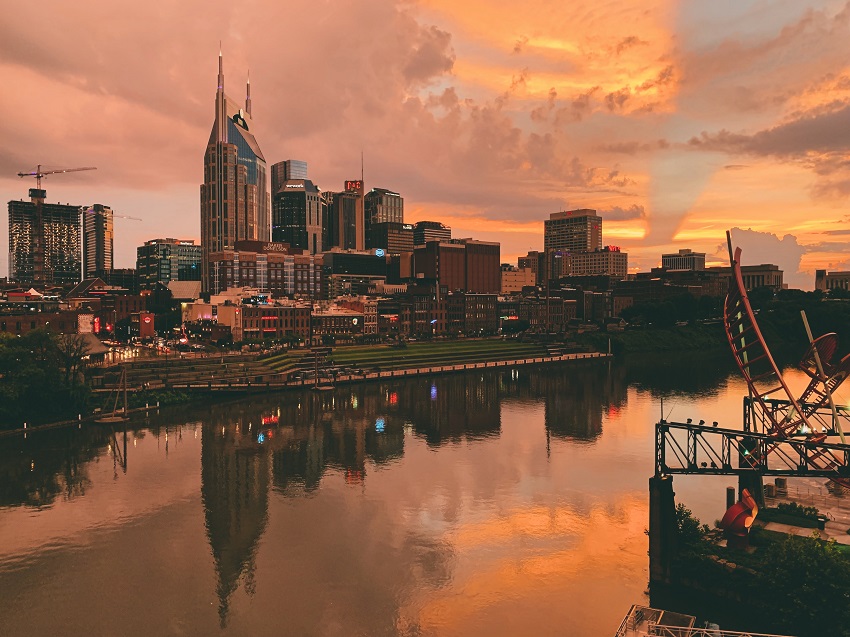
The river actually flows near enough to Nashville that you can enjoy views of the city’s skyline (it’s particularly gorgeous around sunrise and sunset), as well as plenty of scenic and historic sites all along the waterway.
The water is calm enough that even intermediate paddlers will have no trouble heading upstream, after which you can enjoy a peaceful float back downstream to your launch point.
Be warned: there will be other vessels on the water, including motorized boats. Make sure to stay close to the riverbanks to avoid collisions, and be prepared to paddle through a few wakes.
The best time to paddle the Cumberland River is during the off-season when it’s too cold for recreational boaters to be out in full force. Bundle up, and you’ll have the water largely to yourself.
4. Barren Fork River
The Barren Fork River is one of the Cumberland River’s feeder tributaries. Though it only stretches for 23.4 miles, that short distance is enough to make it one of the state’s best waterways for beginners to kayak.
The water is fairly calm and slow-moving, but there’s enough of a current that you can sit back and let the river itself carry you downstream when you get tired of paddling.
The river is one of the few in Tennessee that runs east to west, so you can get on the water with the sunrise and be arriving at your destination just in time to watch the sunset.
There are plenty of access points along the way, as well as parks where you can disembark for a picnic or a rest. Newbies will be right at home on these waters!
5. Hiwassee River
Looking to step up your paddling game but don’t think you’re quite ready for very technical whitewater rapids? Give the Hiwassee River a try!
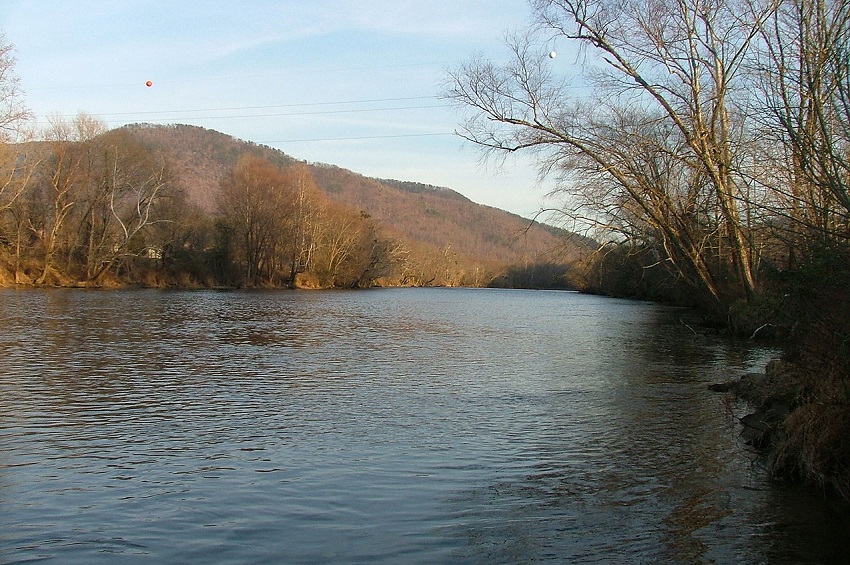
The water is safe to swim in and fairly easy to navigate, but there will be some spots where you’ll have to wrestle with currents and put your paddling skills to the test.
Beginners will have a blast tackling these challenges without putting themselves in any real danger.
The Hiwassee River runs through the gorgeous Gee Creek cliffs, as well as stunning high mountains that offer spectacular views. However, there will be lots of spots to take a break, swim around to cool off on a hot day, or grab a quick bite to eat on shore.
Because the waters are usually fairly free of boats, it’s a great place to spend a day or two paddling in a group or family.
6. Percy Priest Lake
Located just a short drive from Nashville, Percy Priest Lake offers something for every paddler of all skill levels.
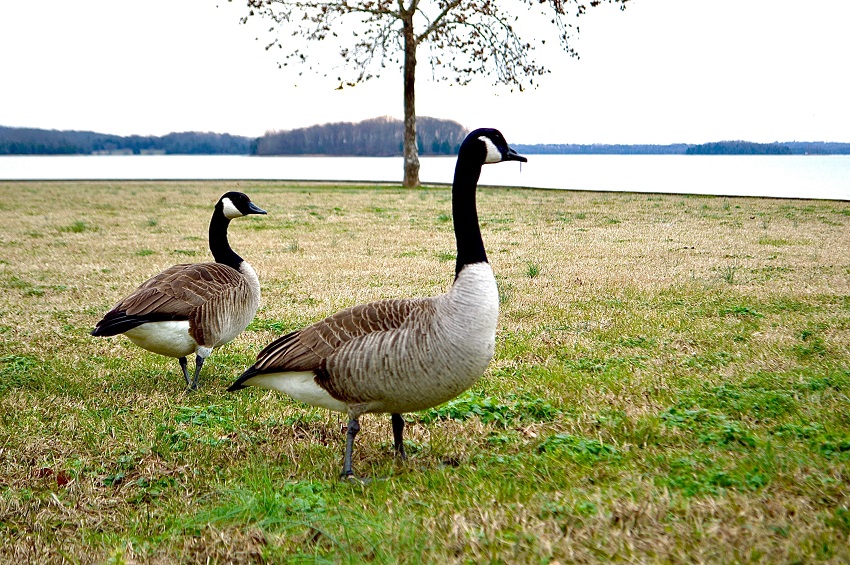
Beginners will prefer the calm waters around Hamilton Creek Recreation Area. Those looking for more challenging waters can paddle out into the middle of the 14,000-acre lake to brave the chop on a windy day.
Given its size, it’s no surprise that lots of kayakers turn their visit to Percy Priest Lake into a multi-day stay.
You can paddle around the lake, visit the many coves and islands it has to offer, or even make camp at a nearby campground or on one of the islands.
With access to public boat ramps and the Hamilton Creek Marina, there are plenty of places to safely launch your kayak and get help should you need it.
7. Big South Fork of the Cumberland
The Big South Fork is one of the tributaries of the Cumberland River, running for a lovely 76 miles all the way into Kentucky to empty into Lake Cumberland.
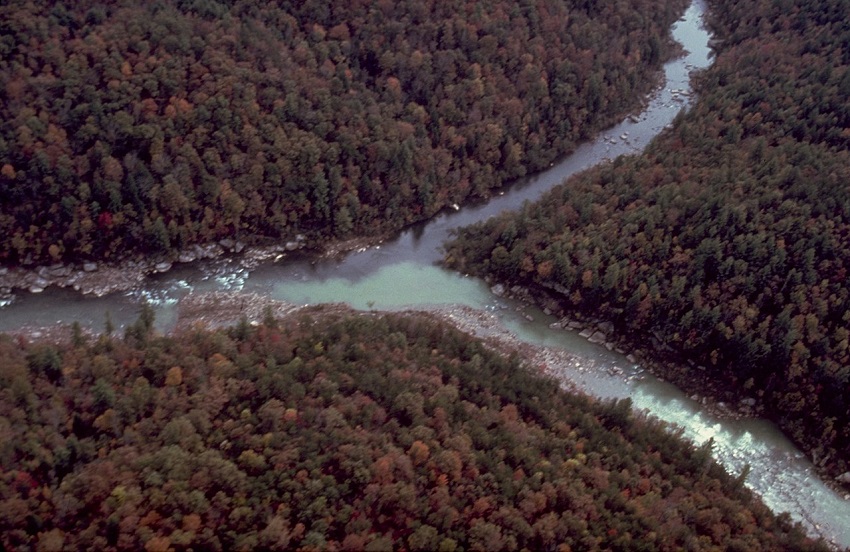
However, while you’re in Tennessee, you can enjoy the whitewater rapids that will test your skills and get your blood up.
With sections ranging from Class II to Class IV, paddlers of all experience levels will have plenty of opportunities to see how they can handle some of the toughest and most challenging rapids in the state.
Of course, there are a few calmer spots where you can drift along on the current and enjoy a few hours of relaxing paddling without having to worry about rapids.
Just make sure you know where you’ll be kayaking or you might find yourself caught up in a current you’re not ready for.
8. Tennessee River Blueway
For those who want to spend a few days out on the water, the Tennessee River Blueway is just the spot.
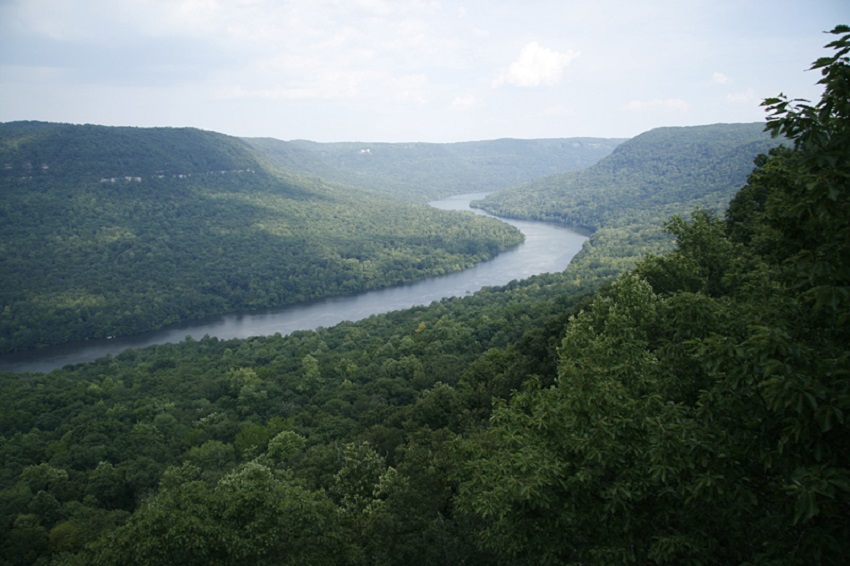
The river runs long enough that you can paddle your heart out and still have plenty more water to cover when the day is over.
Plus, there’s so much to see and do along the way that you’ll want to stop and visit the many sites you’ll encounter.
For example, you can see the Delta Queen boat, the last authentic overnight steamboat which has been permanently docked and turned into a hotel (complete with water fountains!). You can paddle around the boat or even disembark to spend a night in luxury on the river.
All along the Blueway, you’ll see wildlife aplenty—everything from bald eagles to kingfishers to osprey and maybe the occasional deer.
As you’re paddling, keep an eye out for any rope swings and cliff jumping sites you pass, which make the perfect spots to cool off on a hot day.
9. Old Hickory Lake
Old Hickory Lake spans 22,000 acres, which means there’s more than enough water for you and every other kayaker, paddleboarder, and recreational boater out there.
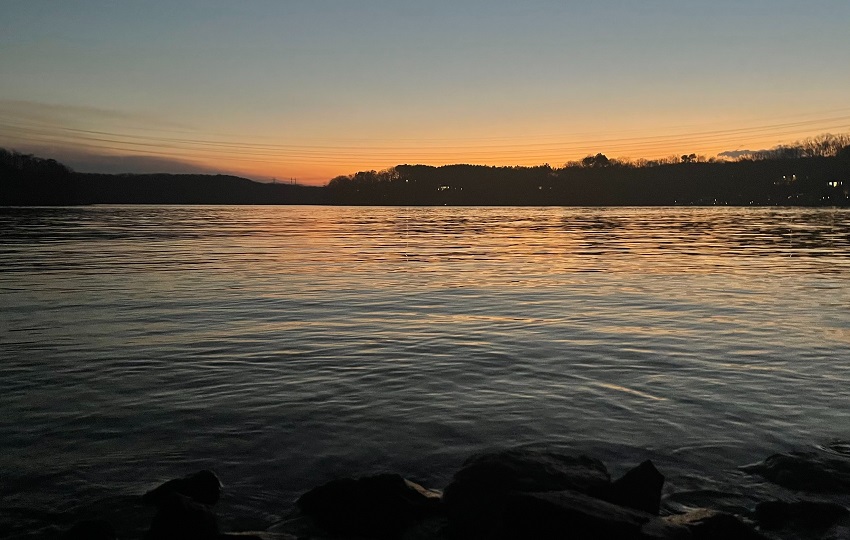
You’ll find plenty of secluded coves and hidden spots where you can get away from the wakes and swells of motorized vessels, and inlets and creeks to go wildlife-watching. There are even a few small islands out on the lake that will be a blast to explore on foot if you need a break from paddling.
The fact that it’s located just half an hour from downtown Nashville makes it a fairly popular destination for boaters and paddlers looking for flat water, and the lake can get pretty busy during the hot summer months.
For a truly memorable experience, book yourself a spot at a local campground so you can be the last one out on the water before sunset and the first one up in the morning for some peace and quiet.
10. The Obed River
The Obed River is the only federally protected waterway in Tennessee. Though it’s just 45 miles long, you’ll find that 35 of those miles are home to some truly exhilarating—and insanely challenging—whitewater rapids.
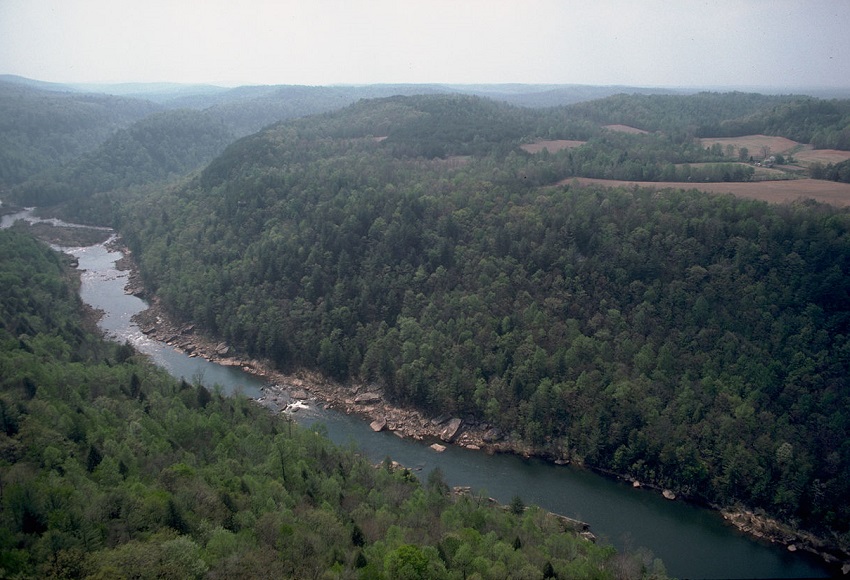
While the water is typically Class II to Class IV throughout most of the year, it can reach as high as Class V when the water levels are high after heavy rains or spring melts. Definitely a good option for experts who want to see how they fare against some of the toughest rapids in the country.
RELATED: Best Whitewater PFD: Top Rescue PFDs Reviewed
If you’re not up for the full length of rapids, there are plenty of shorter sections that you can tackle in just a few hours. Or, just look for the calmer, flatter spots where the river flow is calm enough to enjoy the wildlife and scenic views along the banks.
11. Ocoee River
The Ocoee River is a great place for kayak anglers and history buffs alike!
At the base of the Ocoee Dam, there are plenty of spots where you can cast out a line and catch trout. Or, if you’re lucky, you might reel in one of Kentucky’s official state fish, the smallmouth bass.
Just be aware that you’ll need to obtain a fishing license before getting out on the water.
For history lovers, you’ll want to paddle down to the Highway 411 Bridge. Near this bridge is the gravesite of Nancy Ward, the woman famous for giving shelter to Cherokee Indians along their Trail of Tears journey.
And if you’re just a paddler who wants to spend a day or two on the water enjoying the sun, the river is calm enough that you’ll never struggle and have plenty of chances to kick back and put up your feet.
12. Nolichucky River
The Nolichucky River runs for a whopping 115 miles, cutting through the Blue Ridge Mountains, some of the tallest of the Appalachians Mountains.
Whitewater kayakers come here from all around the country to try their hand at the Class III and Class IV rapids along the mountainous route.
In fact, many recommend coming after a heavy rainfall or storm, when the water is deepest and flows fastest. It’s a true test of your skills and endurance!
Or, if you’d prefer to watch, there are plenty of places along the river where you can see how other paddlers tackle the rapids first. It’s a destination perfectly suited for adrenaline junkies!
13. Harpeth River
For those who prefer to keep it relaxed, the Harpeth River is home to only Class I waters, making it the perfect spot to spend a calm day out on the water with your family or friends.
The river stretches long enough you can be out for an entire day or just pass a few hours in recreational enjoyment of our favorite water sport.
The Harpeth runs through a state park for a 40-mile stretch, which offers plenty of campgrounds, beaches, picnic spots, and access points.
There are even interactive activities held along the waterway—including archeological hikes and animal spotting—so no matter what you’re into, you’ll find it here.
14. Little River
Looking for a destination to spend a few days fishing in relative calm out on the water? Little River is absolutely the place for you!
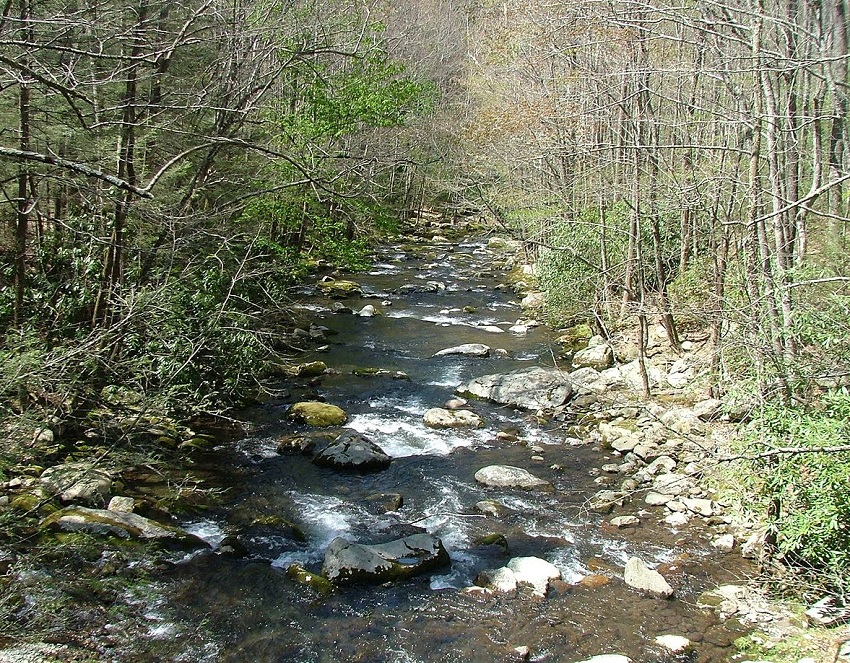
Trout Unlimited named it one of America’s 100 Best Trout Streams, marking it as a great spot to come and cast your line in the hopes of catching a few freshwater trout.
But even if you don’t catch anything, the views of the Great Smoky Mountains are beautiful and the national park is peaceful enough to make those hours well worth it.
Of course, adventure kayakers also love Little River because of the Class III and Class IV rapids. There are a few sections where you can put your skills to the test—of particular note is The Sinks, a series of natural pools that lead into a 3-mile stretch of whitewater.
15. David Crockett State Park
Last, but certainly not least, there’s the David Crockett State Park. Named after one of the state’s greatest heroes, the state park is home to Lake Lindsey, a small (35 acre) body of water that is perfect for young and inexperienced paddlers.
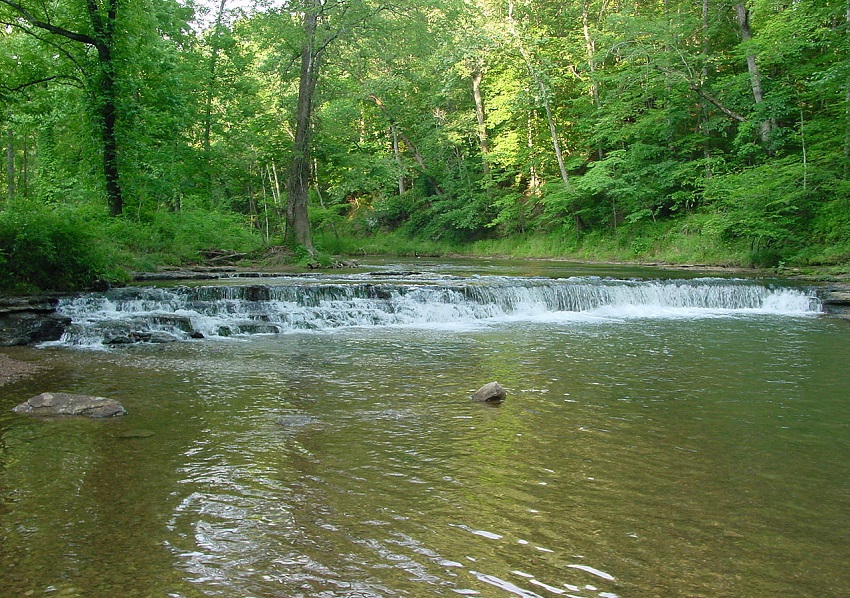
The water is calm and free of currents, and there are few boats to share the space with. There’s fishing aplenty, campgrounds all around, and even places to rent fully furnished cabins for a more luxury experience.
When you get tired of the water, you can always enjoy hiking through the nearby woodlands or grilling up a feast on the lakeshore. Kids and adults alike will love Lake Lindsey!
Kayaking Tours in Tennessee
If you’re visiting Tennessee for the purpose of kayaking, you’ll be glad to know there are plenty of spots where you can put in and enjoy a calm, relaxing day out on waterways that you know will be safe.
RELATED: Kayaking Near Me: an Interactive Map of Places to Go Paddling
As you saw from our list above, Tennessee has lots of beginner-friendly rivers, lakes, and creeks to paddle.
But you probably also saw that there were a few rivers that went from calm to fast-flowing and potentially dangerous quickly. Some of the larger lakes also have the potential to be perilous for newbies who aren’t accustomed to handling the wakes of motorized boats or the chop on a windy day.
That’s why, if you’re unfamiliar with Tennessee waters, it’s a good idea to consider kayaking tours in Tennessee.
A kayaking tour can provide you with quality equipment (in case you didn’t bring your own) and expert guidance on how to handle the conditions unique to the state. You’ll also get insight from locals and hear about little-known spots that you might have missed otherwise.
If you’re considering kayaking tours in Tennessee, here are a few of the best-known and most highly-rated options:
- Nashville Paddle (tours of Percy Priest Lake)
- Duck Canoe (tours of Duck River)
- Cumberland Kayak (tours of the Cumberland River)
- River Queen Voyages (tours of the Cumberland River and downtown Nashville)
- Canoe the Caney (tours of the Caney Fork River)
- Smoky Mountains (tours of the French Broad River, the Tennessee River, and the Little River
Additional resources to use to find kayaking tours in Tennessee include:
- Trip Advisor – If you know which city or town in Tennessee you’ll be visiting, input that into Trip Advisor’s search engine and you’ll get a number of suggestions on the best kayak outfitters and tour guides at and around your destination.
- Viator – Viator is a Trip Advisor website that specializes in activities like paddling tours. You can search for adventure packages near the city where you’ll be visiting and read real-life reviews from people who’ve enjoyed the experience (or not).
- Google Maps – For anyone planning a trip to Tennessee but isn’t sure which city to visit, head to Google Maps and do a search for “kayaking tours in Tennessee”. You’ll get a multitude of options for all the outfitters and tour guides in the entire state, letting you choose the destination that suits your desires best.
Tennessee Kayaking Laws

Kayaks are non-motor powered vessels
Because they are manually/paddle-powered, there is no need to register them. Registration is only required if your kayak has a trolling motor mounted.
Once registered, you must display the correct, valid decals on your kayak at all times, or be at risk of fines.
There is no minimum age for operating a kayak
Manually powered vessels have no minimum age requirements. However, operating a kayak with a mounted trolling motor is only legal for those under the age of 12 if an adult (18+ years) is on board.
Kayakers must have one lifejacket on board per person
Children under the age of 13 must wear the lifejacket at all times, but adults must simply have one U.S. Coast Guard-approved PFD per person on board and within easy access.
Kayakers must display lights at “low visibility times”
All vessels—both motorized and paddle-powered—must display a white light or visible lantern during times of reduced visibility (i.e. in foggy conditions) as well as between sunset and sunrise.
Kayakers are required to carry a sound-producing device
All vessels shorter than 39.4 feet are required by Tennessee law to carry at least one sound-producing device, be it an air horn or whistle.
Kayaks do not need to carry visual distress signals (VDS)
There is one exception to this rule: kayaks operating in federally controlled waters must carry a U.S. Coast Guard-approved VDS. That means if you’re paddling the Obed River, you will be required to have VDS on board your kayak.
Kayakers absolutely can get a BUI
In Tennessee, if you are visibly impaired or under the influence of drugs or alcohol, law enforcement is fully authorized to require you to submit to a test. If your Blood Alcohol Level is above 0.08%, you are breaking the state laws and will be given a BUI, or Boating Under the Influence (the boating equivalent of a DUI).
Penalties for your BUI are:
- 48 hours to 11 months and 29 days in jail, license revocation for up to one year, and $350 to $1,500 fines on your first offense.
- 45 days to 11 months and 29 days in jail, license revocation for up to two years, and $600 to $3,500 fines on your second offense.
- 120 days to 11 months and 29 days in jail, license revocation for up to six years, and $1,100 to $10,000 fines on your third offense.
- On your fourth offense, it becomes a Class E felony.
The presiding judge may also require you to complete Drug and Alcohol Treatment.
Kayaking in Tennessee FAQs
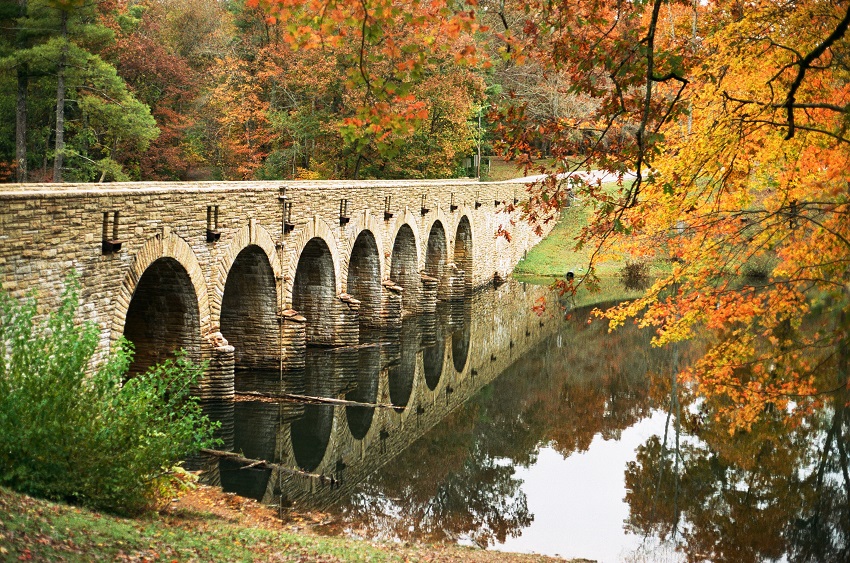
You do not need a permit to kayak in Tennessee. The only exceptions to that rule are:
– If you are fishing, you’ll need a fishing license.
– If you’re paddling with a trolling motor, you’ll need to register the kayak.
Beginners looking for a relaxing day tend to love the Hiwassee River. More experienced whitewater paddlers come to Tennessee to brave the challenges of the Obed River. Urban paddlers who want to stay close to the big city prefer the Cumberland River.
According to Tennesee Paddlesports Laws, “It is unlawful to use or be in possession of drugs or controlled substances while boating or paddling.” You can drink on shore, but once you’re out on the water, it’s illegal to drink alcohol.

